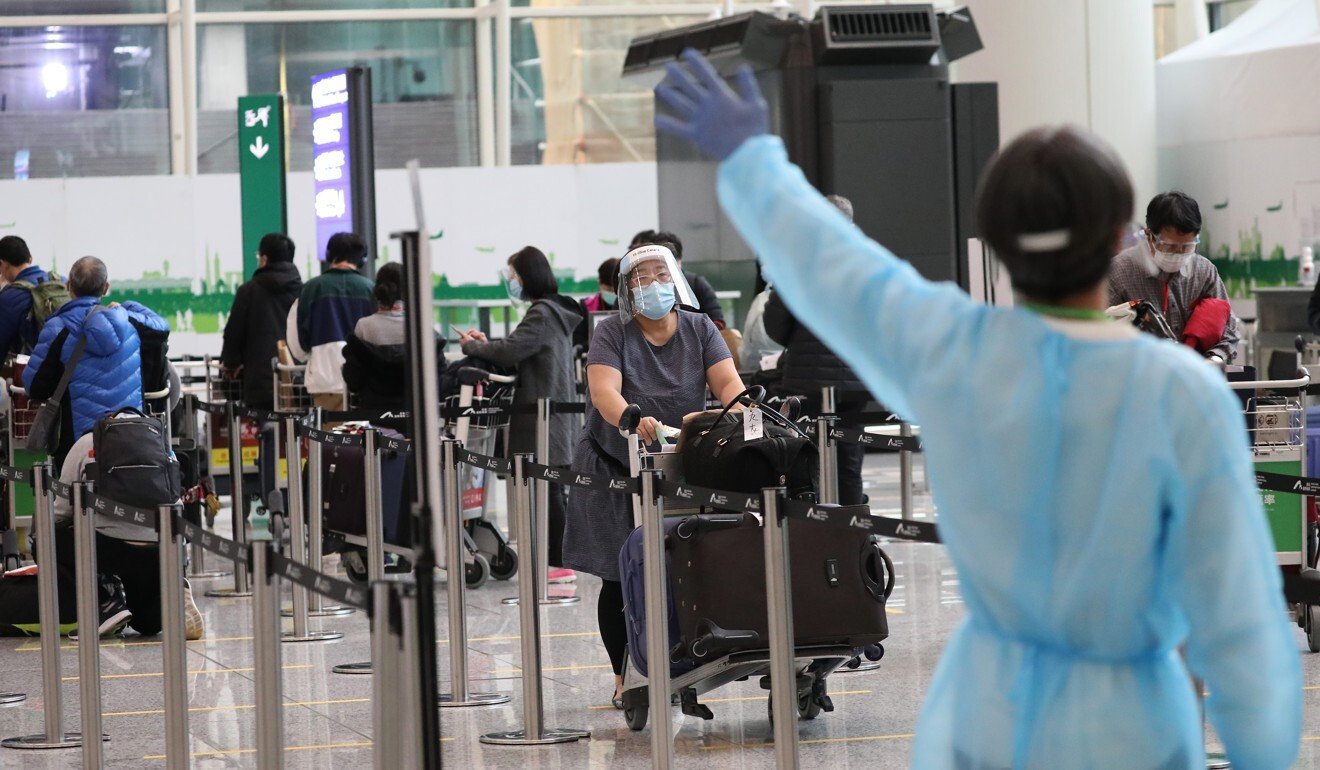
Coronavirus: teams to start vaccinating employees at workplace from next week to boost Hong Kong’s inoculation rate
- Civil Service Bureau says it is in talks with construction sector, consultancy firms and public utilities to launch programme
- Fourteen-day hotel quarantine instead of home isolation announced for arrivals from Taiwan amid surge of cases on island
Covid-19 vaccination teams will start administering jabs to employees at their own workplaces next week under an outreach service for companies that aims to boost Hong Kong’s sluggish inoculation rate.
Health authorities also announced on Friday a tightening of quarantine rules for travellers from Taiwan, imposing 14 days of confinement in a designated hotel instead of at home. The new measures, taking effect on Sunday, were unveiled amid a recent surge of locally transmitted coronavirus cases on the island.
The Civil Service Bureau, which is in charge of the city’s Covid-19 vaccination programme, said the outreach service would be offered to different sectors and businesses as a convenient way for people to receive the jabs.

“The bureau is now working with the construction sector, consultancy firms and public utilities to prepare and launch the outreach services,” the bureau said, without elaborating on the roles those organisations would have.
The service will be operated by the medical institutions already running the city’s network of community vaccination centres, according to the government.
The China-made Sinovac vaccine and the Germany-produced one from BioNTech – the two currently approved for emergency use in Hong Kong – will be available through the outreach scheme.
The bureau did not mention whether companies would only be eligible for the service if a certain number of their staff took part. But a source said that ideally at least 100 people per institution would sign up.
Some outreach visits had already been scheduled for next week, the source said.
Hong Kong power supplier CLP said it was discussing with the government the possibility of arranging vaccination outreach services on company premises, saying that would provide more flexibility and convenience to staff and their relatives. The firm said the details were under discussion.
Also on Friday, the city confirmed just one coronavirus infection, an imported case involving a 43-year-old man arriving from the United Arab Emirates. Officials also reported that fewer than five people had tested preliminary-positive.
But the improving outlook for the city’s pandemic fight did not stop authorities from tightening quarantine rules for Taiwan arrivals.
The measure represents a shift from the current policy of allowing arrivals from the island, along with those from mainland China and Macau, to undergo isolation at home.

She added the move would help reduce the chance of infections entering the community.
As with other travellers who must quarantine for 14 days, they will be tested three times during their stay in a designated hotel, and screened again on their 16th and 19th days in Hong Kong.
People who have been fully vaccinated against Covid-19 will be allowed to self-monitor for a week in the community after spending seven days inhotel quarantine.
According to Dr Ronald Lam Man-kin, controller of the Centre for Health Protection, 489 people had arrived in the city from Taiwan so far this month.
Hong Kong makes hotel quarantine mandatory for Taiwan arrivals amid outbreak
Taiwan reported 29 new locally transmitted cases on Friday, taking the number of infections in the current outbreak there to 100, after recording none for several months.
Chan said vaccinating those groups of people would be helpful in the city’s fight to control the virus.
“Non-residents who have stayed in Hong Kong for a period of time are also considered as part of the city’s population,” she said. “Providing vaccination services to them could protect them from infections and it is also helpful in preventing transmission of the virus in the community.
“Based on public health considerations, we are reviewing the arrangement in providing vaccination services for these people and would announce in due course.”
As of Friday, Hong Kong’s infection tally stood at 11,818, with 210 related fatalities.
Health experts also endorsed tougher Covid-19 screening rules for inbound travellers under quarantine in designated hotels.
Infectious diseases specialist Dr Joseph Tsang Kay-yan supported the move to increase the frequency of tests for arrivals at hotels, as well as having experienced medical staff take samples during regular screenings.
Dr Gilman Siu Kit-hang, from Polytechnic University, also supported the latest plans to step up screening arrangements for arrivals, including capping the occupancy at 80 per cent if a large number of a hotel’s guests came from high-risk areas.
But Dr Leung Chi-chiu, a specialist in respiratory medicine who described the latest new policies as “minor changes”, suggested the government must also review its overall policies in preventing the importation of Covid-19 cases in the long term, such as when looking into reopening borders and pushing forward travel bubbles.


